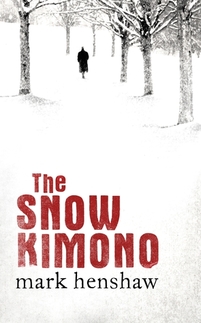
It’s a novel composed of stories within stories within stories, like matryoshka dolls, as Tadashi Omura collars Auguste Jovert to offload the tale of his adopted daughter and his increasingly unreliable friend, Katsuo. Yet, unlike those Russian dolls, the stories don’t fit neatly one inside the other as we jump back and forth between France, Algeria and Japan, moving in time across four decades at the end of the last century. Nor, although well written, are they sufficiently distinct in style or genre, like David Mitchell’s Cloud Atlas, to astound us with their brilliant audacity. And while the novel provides a rationale for the structure in terms of the Japanese saying:
If you want to see your life, you have to see through the eyes of another
By three quarters of the way through my reading experience was akin to a meal comprised solely of hors d’oeuvres. I wondered if the Australian government had decreed that writers could publish only one novel in their lifetimes, and this was Mark Henshaw’s sole opportunity to display his disparate interests. But surely, I thought, despite having read Camus at school, I couldn’t be the only English-language reader whose knowledge of the Algerian fight for independence was so skimpy I couldn’t be satisfied with a novel that only scratched the surface. I couldn’t, despite the recent popularity of novels featuring geishas, be the only reader who needed a larger portion of that strand too.
But woe the reviewer who falls into the trap of precrastination and writes her piece before she’s finished the novel! (I didn’t, but I did record some ideas – along with the howling wind – on my phone when out walking at the weekend.) Because in those last hundred pages the pieces of the Japanese side of the story came together in a satisfying manner, which I can’t relate without spoiling. There was also a lovely twist I hadn’t anticipated which excused the unlikely meeting between the lawyer and the police inspector right at the start. This made me wonder if the author was using those professions in the way a writer might use a psychological therapist, a character who enables others to tell their stories in order to avoid focusing on their own.
In conclusion, The Snow Kimono holds together much more than I thought originally, but I’m still leaving the table with a vague sense of wanting more. Perhaps it’s more like a meal made up of tapas than hors d’oeuvres. Thanks to Tinder Press for my review copy.





















 RSS Feed
RSS Feed





















